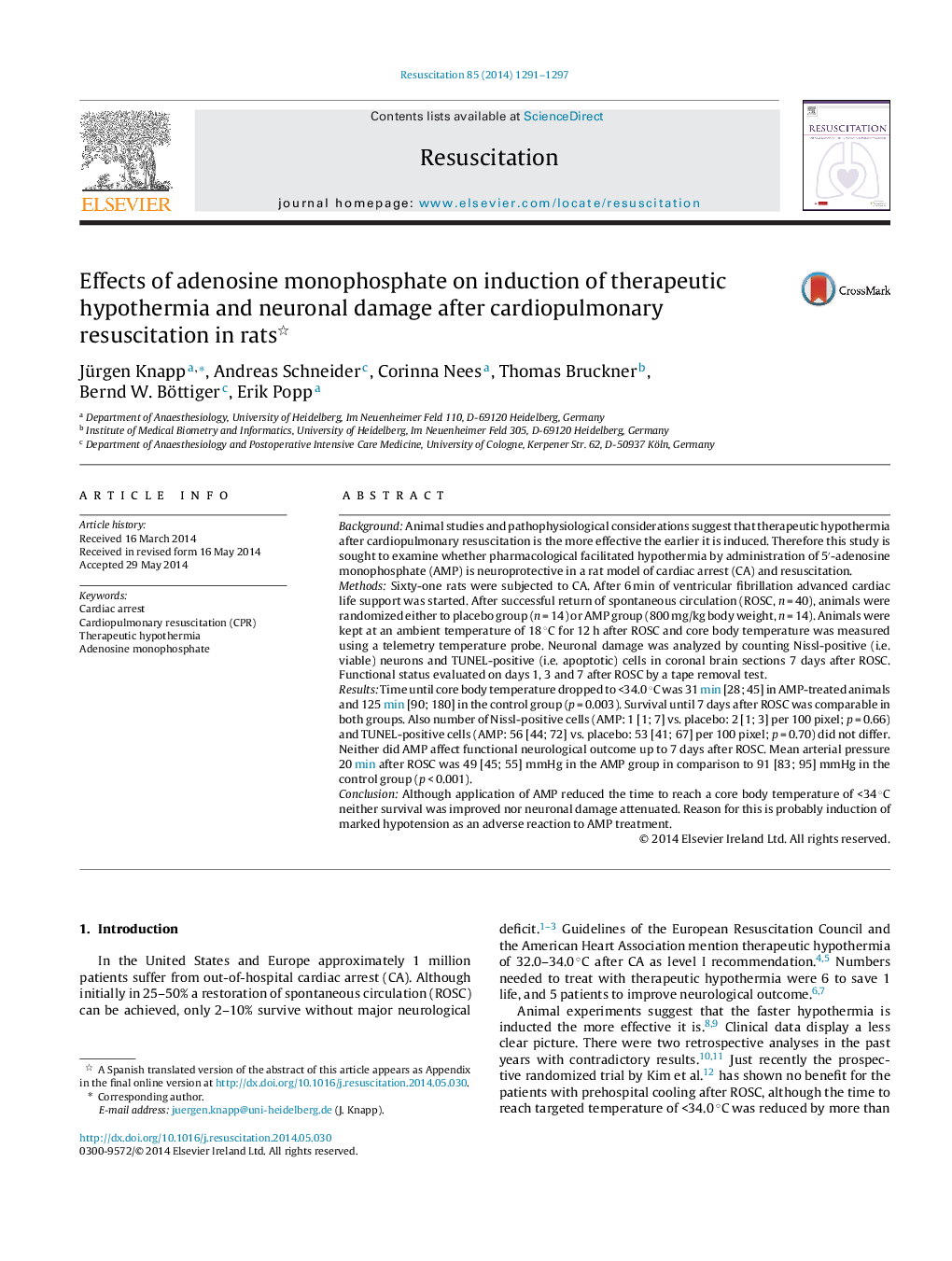| کد مقاله | کد نشریه | سال انتشار | مقاله انگلیسی | نسخه تمام متن |
|---|---|---|---|---|
| 5998278 | 1181438 | 2014 | 7 صفحه PDF | دانلود رایگان |
BackgroundAnimal studies and pathophysiological considerations suggest that therapeutic hypothermia after cardiopulmonary resuscitation is the more effective the earlier it is induced. Therefore this study is sought to examine whether pharmacological facilitated hypothermia by administration of 5â²-adenosine monophosphate (AMP) is neuroprotective in a rat model of cardiac arrest (CA) and resuscitation.MethodsSixty-one rats were subjected to CA. After 6 min of ventricular fibrillation advanced cardiac life support was started. After successful return of spontaneous circulation (ROSC, n = 40), animals were randomized either to placebo group (n = 14) or AMP group (800 mg/kg body weight, n = 14). Animals were kept at an ambient temperature of 18 °C for 12 h after ROSC and core body temperature was measured using a telemetry temperature probe. Neuronal damage was analyzed by counting Nissl-positive (i.e. viable) neurons and TUNEL-positive (i.e. apoptotic) cells in coronal brain sections 7 days after ROSC. Functional status evaluated on days 1, 3 and 7 after ROSC by a tape removal test.ResultsTime until core body temperature dropped to <34.0 °C was 31 min [28; 45] in AMP-treated animals and 125 min [90; 180] in the control group (p = 0.003). Survival until 7 days after ROSC was comparable in both groups. Also number of Nissl-positive cells (AMP: 1 [1; 7] vs. placebo: 2 [1; 3] per 100 pixel; p = 0.66) and TUNEL-positive cells (AMP: 56 [44; 72] vs. placebo: 53 [41; 67] per 100 pixel; p = 0.70) did not differ. Neither did AMP affect functional neurological outcome up to 7 days after ROSC. Mean arterial pressure 20 min after ROSC was 49 [45; 55] mmHg in the AMP group in comparison to 91 [83; 95] mmHg in the control group (p < 0.001).ConclusionAlthough application of AMP reduced the time to reach a core body temperature of <34 °C neither survival was improved nor neuronal damage attenuated. Reason for this is probably induction of marked hypotension as an adverse reaction to AMP treatment.
Journal: Resuscitation - Volume 85, Issue 9, September 2014, Pages 1291-1297
